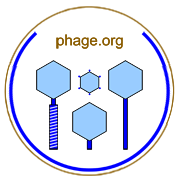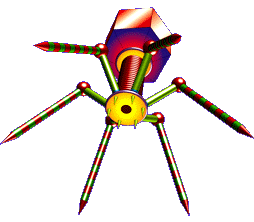

Characteristic of two temperate phages where a prophage of one type fails to display immunity against a second type.
With heteroimmunity there is repressor compatability. This is compatability in an ecological sense rather than from a biochemical perspective. That is, both or more temperate phages are able to display lytic as well as lysogenic cycles that are independent of the other despite the presence of each other's repressors. Contrast homoimmune.
Experimentally, heteroimmunity is quite useful since it allows active superinfection of a lysogen by a second temperate phage. Ecologically, the existence of multiple immune types allows (1) polylysogeny to occur, (2) an ability of temperate phages to productively infect some though not all bacterial lysogens, and (3) a vulnerability of lysogens to temperate phages despite their display of immunity.
The glossary to Hershey (1971) defines "homoimmune" in this manner (p. 775): "Two phages are heteroimmune if each is sensitive to its own repressor but not, to that of the other."
For more on this topic, see Wikipedia, Google, and PubMed. Contact web master. Return to terms.